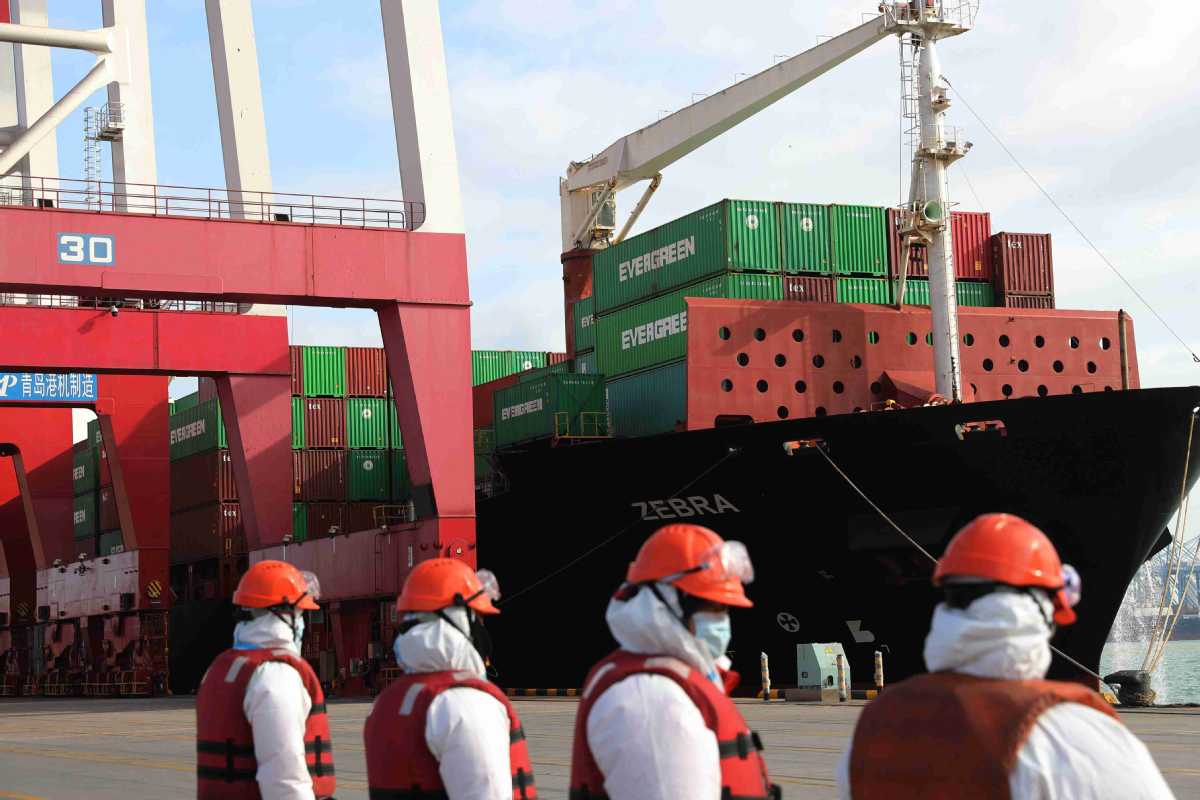Shippers, container makers in overdrive
By ZHONG NAN and LIU ZHIHUA | China Daily | Updated: 2021-03-12 09:38

Jiang's sentiments are shared by See Chee Kong, minister of economic affairs at the embassy of Malaysia in China. He said with trade and investment barriers being removed, the RCEP is expected to generate fresh momentum for member countries.
The outbreak of COVID-19 was a surprise to all, but it is unfair and groundless to say China exploits opportunities from the pandemic while in fact the nation has been making great efforts to stabilize global industrial and supply chains for the containment of the pandemic and the world economic recovery, said Zhou Mi, a senior researcher at the Chinese Academy of International Trade and Economic Cooperation in Beijing.
Zhou said China always contributes to the improvement of the international economic and trade order through working with all parties to advance World Trade Organization reforms and fix its dispute settlement mechanisms, and supports the enhancement of international economic and trade rules and trade facilitation.
Under the impact of the pandemic, it is normal that companies choose to invest in markets where supply and industrial chains are relatively stable and market potential is huge. China achieved fast rebounds in economic growth and foreign trade after the shock of the pandemic last year, largely due to its attraction to companies because of the favorable policy environment and huge market, he added.
With an annual growth of 2.3 percent, the Chinese economy was the world's only major economy to have avoided contraction in 2020. Its 101.6 trillion yuan GDP is estimated to account for more than 17 percent of the world's economy, said the National Bureau of Statistics in late February.
Thanks to effective measures to contain the pandemic, the Chinese market has recovered faster than many others, and thus attracted many other trading partners to strengthen their economic and trade ties with China. For example, the Association of Southeast Asian Nations became China's biggest trading partner in 2020 amid upgraded free trade area protocols and supply chain cooperation.
As it is unlikely that the world will fully contain the pandemic over the short term, it is expected that new trade models such as e-commerce and artificial intelligence-empowered online transactions will become more effective. Industrial and supply chains need to be upgraded, Zhou said.
Faced with the pandemic, he said it is normal that sometimes there are misunderstandings among members of the international community. But it is important for different countries to cooperate, jointly deal with the crisis and seek development pathways, rather than point fingers at each other or resort to protectionism and isolation.
Due to the pandemic, many overseas manufacturers have either suspended their production or shut their factories to avoid health risks. This has further stimulated market demand for various industrial goods and daily necessities across the world, said Li Xingqian, director-general of the foreign trade department at the Ministry of Commerce.
Despite many Chinese companies raising their output, they also bore the pressure of growing labor and shipping costs, as well as price rises of imported materials to produce goods for stay-at-home products and other key goods.
Since China produced 40 face masks for every person around the world in 2020, no other economy could compete with the country in the global supply chain and the contribution it has supplied to the world's fight against the pandemic, said Li Kuiwen, director-general of the GAC's statistics and analysis department.
China had maintained its position as the world's largest trading nation in goods over the past five years, with its imports and exports taking up a record-high share in the global market. The country's total foreign trade rose 17.2 percent to reach 146.37 trillion yuan during the 13th Five-Year Plan period (2016-20), the GAC said.
With growing protectionism and the COVID-19 pandemic, global trade is more important than ever, said Javier Gimeno, senior vice-president of Saint-Gobain SA, a French industrial conglomerate.
"All countries and regions depend on open, transparent and rules-based trade to provide reliable access to essential goods and services to boost their economies," he said.
The company plans to open at least 10 plants during China's 14th Five-Year Plan period (2021-25) to ramp up its production capacity in China, in order to meet growing demand in both China and abroad.
Together with the growth of the Belt and Road Initiative, he said people living in less-developed countries in Asia, Africa and Europe will see new infrastructure projects grow and numerous jobs will be created in their markets. They will feel the tangible spillover effect of China's booming economy.
























